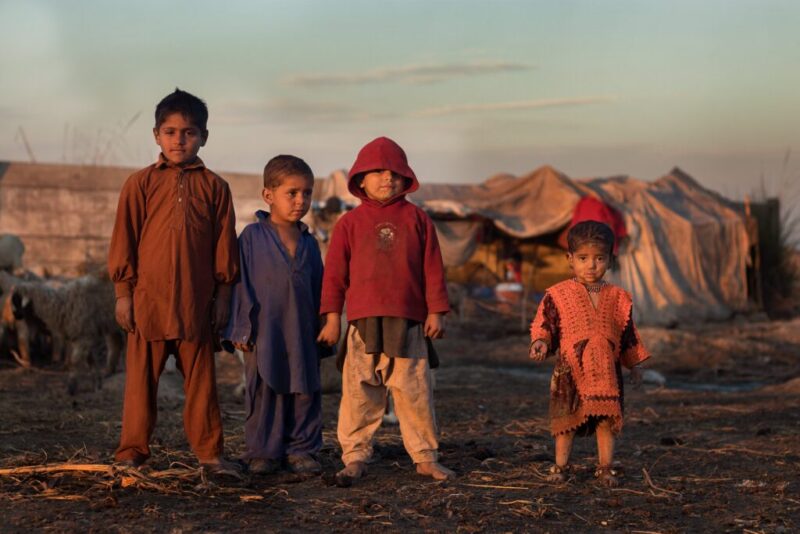The commemoration of the Universal Declaration of Human Rights on the 10th December this year is taking place in the shadow of an ever-widening spiral of violence, risking humanity’s condemnation to a future of unimaginable pain, fear, and destruction. In response, the Justice and Peace Commission unreservedly condemns the horrific acts of violence that are once again ravaging the Holy Land and its people and calls for a radical shift from a global paradigm of violent war and revenge to a paradigm of just peace and reconciliation.
Driven by a deep belief in the inalienable dignity of every person, we mourn the lives of all the latest victims in Israel and Palestine. The shocking slaughter of over 1,400 Israelis on the 7th October was swiftly followed by a devastating military response in the Gaza Strip, resulting in over 16,000 dead and countless others homeless and destitute. The Commission expresses solidarity with the victims of these terrorist acts while firmly condemning all forms of antisemitism persisting in our societies.
However, our commitment to international law, respect for human rights commemorated on the 10th December, and the path indicated by Pope Francis in the encyclical Fratelli Tutti should push us to demand something different than attempting to erase the horrific events of the 7th October with even more horror.
Recognising that this cycle of never-ending violence leads us to a literal dead end, we must act now. Vengeful retaliation by either side will only lead to more bloodshed, extinguishing any hope for a just and sustainable peace. As pointed out recently by Archbishop Charles Scicluna in his homily during Remembrance Day: “Those who choose war instead of politics are reaping the curse of death”.[1]
Even while recognising a people’s right to self-defence, Pope Francis consistently claims that war has no real winners and is always a defeat. He urges the world to take “only one side” in war – the side “of peace”. During one of his weekly audiences, he added that “war does not solve any problem; it only sows death and destruction, increases hatred, multiplies revenge. War erases the future”.
Confronted with narratives that seek to oversimplify a conflict that is anything but simple, the Commission urges all people of goodwill to embrace the multi-layered complexity of this conflict. Recognising that this war did not start with the attacks on the 7th October, breaking the spiral of hate and vendetta rooted in intolerable injustice and suffering requires a radically different approach from militarism, which may win wars but will not win a just peace.
In Israel and Palestine, as well as in Ukraine, Sudan, and Myanmar, a new path based on justice, truth, and reconciliation is essential. Just peace comes at a price, and the Justice and Peace Commission acknowledges the sacrifices made by those taking the first steps toward reconciliation. Whether at the community, national, or international level, building peace requires courage, empathy, and a genuine commitment to fostering understanding among diverse populations.
On this 75th anniversary of the Universal Declaration of Human Rights, the Justice and Peace Commission calls upon individuals, communities, and nations to reflect on the shared responsibility of promoting a new paradigm based on a solid commitment to recognising the inalienable right of everyone to live with dignity, security, and freedom. Instead of more weapons, a concerted effort is required to address the long-ignored root causes of conflict. Dehumanising rhetoric justifying the killing and mistreatment of fellow human beings needs to be replaced with the courageous language of respect and honest dialogue. Finally, religions should stop being instrumentalised for political and military purposes,[2] to become credible and prophetic bulwarks against all those forms of violence, injustice, and hatred that are tearing us apart.
[1] church.mt/remembranceday2023
[2] vatican.va/content/francesco/en/travels/2019/outside/documents/papa-francesco_20190204_documento-fratellanza-umana.html



